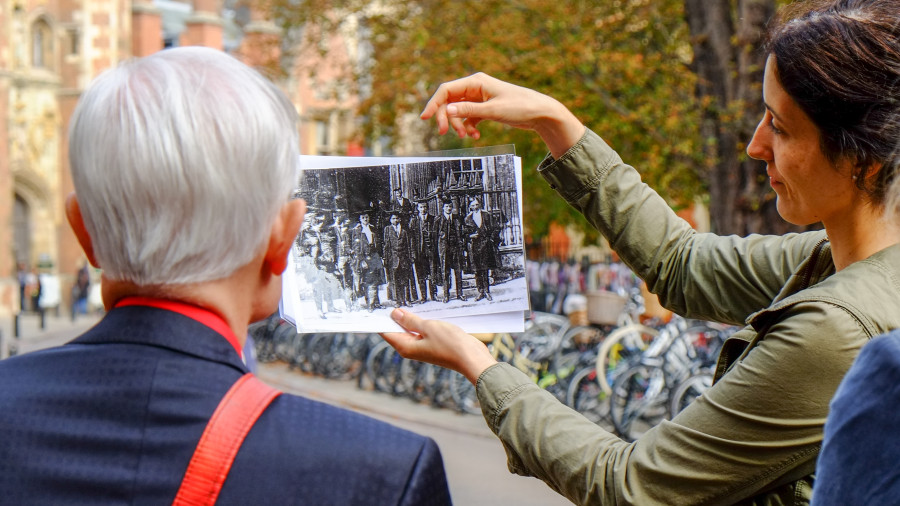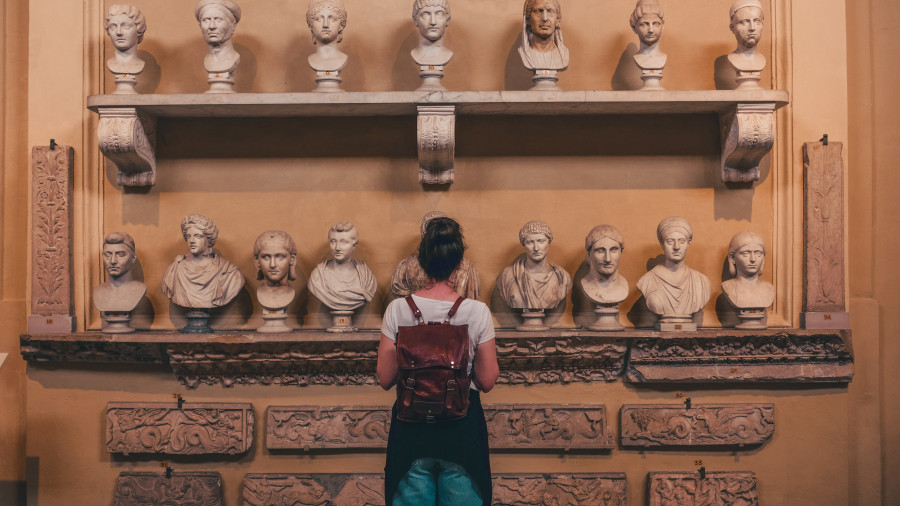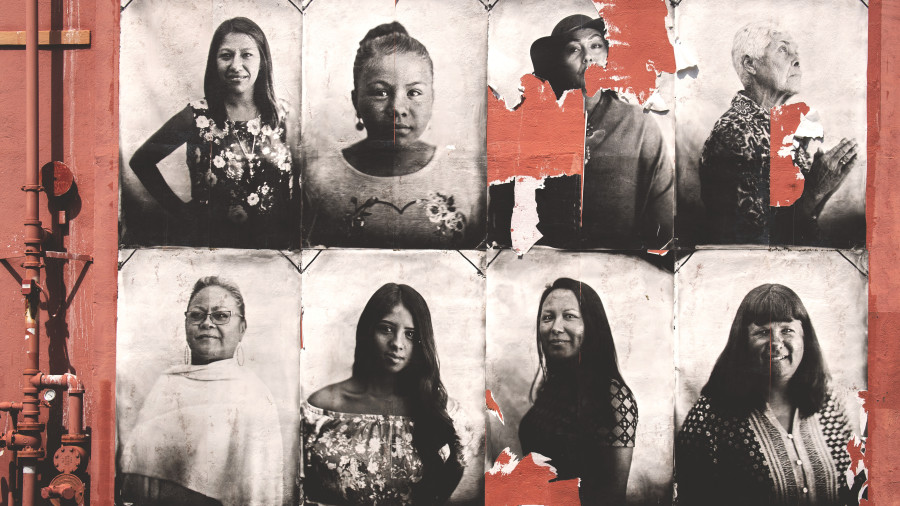
History at Wolfson
The course at Cambridge covers every period of history from the most ancient to the most modern and ranges geographically from Britain, Ireland and the continent of Europe to America, Africa and Asia. Cambridge has long enjoyed a distinguished reputation in the field of political history and it has also played a leading role in the development of social and economic history. More recently it has become a major centre for the study of intellectual history and has developed strengths in cultural and global history.
The undergraduate course is designed to make the most of this large reservoir of expertise and to enable students to develop their own special interests as they move through each of the three years. Throughout the course there is ample scope to pursue your personal interests and to engage with different historical approaches. Specialist papers allow you to work with a variety of source materials, from medieval coins to modern newspapers.
You can find further information about studying History on the University's course pages. Detailed information is also available on the Faculty's Prospective Undergraduates page.

What are we looking for?
We want to admit students who enjoy reading, writing and thinking about the past in all its forms; who are willing and able to undertake independent study; who would enjoy working alone and with their peers; and who relish the opportunity to engage in discussion and debate.
You need to be able to present your ideas clearly, sharply and accurately, and above all to be able to write analytically. We are not looking for the ‘finished article’, but for people who have the ability and desire to learn.
The best preparation for applying to Wolfson, and for interview, is to read as widely as you can. This can be both in History and in related fields such as literature and current affairs. There are no ‘set texts’ that we prescribe, but try and extend your reading around what you may have studied at school, and look beyond it to other periods and places. Follow your own interests and develop them. An enthusiasm for the subject is vital to studying History at university, and, when you apply for a place, reading is the best way of demonstrating this.
Entry Requirements
There is no single combination of subjects that is especially good for students wishing to study History. It is highly desirable, but not essential, that you be taking History A-level (or equivalent). Successful applicants take all sorts of subjects from Mathematics and the sciences, to arts and social sciences. All of these teach skills that can be useful to the undergraduate historian. It may be useful to have a second essay-based subject alongside History. Please consult the University's entry requirements for History for further information.
Applications
Applications to study History at Wolfson are submitted through UCAS. The College additionally requires the submission of written work and an online interview, as detailed below.
| Written Work | Applicant are required to submit two pieces of written work by 2 November. This should be in a related discipline which the candidate is studying or has studied. For the March round, all applicants must submit their written work by 8 March. |
| Assessment | There is no written assessment. |
| Interview | Shortlisted candidates will be invited to be interviewed in December (or late March for those who apply in the March round). There will be one or two interviews (in total lasting 40-50 minutes) which will be conducted online via Zoom. |
For more information about making an application, please visit our application webpages.
You can also find useful information on our Application FAQs page.

Student perspective: History at Wolfson
The History Tripos has been incredible. It has given me the opportunity to study a wide range of historical eras and topics, and the supervision system grounds you into the subject knowledge - you have weekly, direct access to someone who has expertise in the topic. I am currently planning my dissertation topic which will examine 20th century British radio infrastructure as cultural sites and how people within their vicinity engage with them on a cultural and political level.
Nathan Westhead (second-year undergraduate)
More information about Nathan's journey at Wolfson College can be found here.
